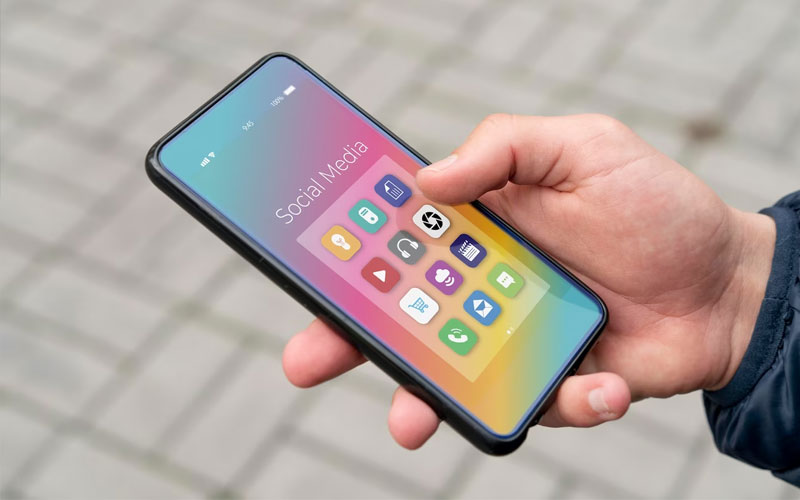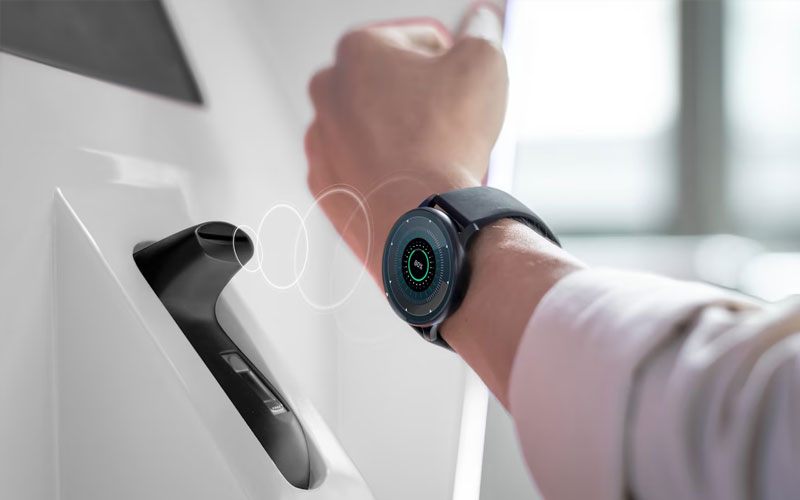How Mobile Apps Are Transforming Mental Health Support in the Digital Health Era

In the fast-paced world of digital health, mobile apps have emerged as powerful tools revolutionizing mental health support. With the widespread usage of smartphones, these apps offer accessible, convenient, and effective resources for individuals seeking help and managing their mental well-being. This blog will explore how mobile apps transform mental health support in the digital era, providing personalized interventions, connecting users with professionals and peer support, and promoting accountability.
Accessibility
In digital health, accessibility is key, and mobile apps have paved the way for individuals to access mental health support like never before. Users can access a wide range of resources anytime, anywhere, with just a few taps on a smartphone. This eliminates barriers such as geographical distance and time constraints, making mental health support available at the user’s convenience. Additionally, these apps help combat stigma by providing a discreet and private platform for seeking help.
Convenient Self-Help Tools
Mobile apps offer many self-help tools to empower individuals in their digital health journey. From mood trackers to meditation guides and cognitive-behavioral therapy exercises, these apps provide users with practical and effective resources at their fingertips. The convenience of accessing these tools on a smartphone allows users to engage in self-care and seek support whenever they need it. These tools enhance self-awareness, facilitate relaxation, and assist in developing healthy coping mechanisms.
Connecting with Professionals and Peer Support
One of the significant advantages of mobile apps in mental health support is the ability to connect individuals with professionals and peer support. Through these apps, users can access virtual therapy sessions and online counseling platforms, breaking down barriers of time and distance. This digital health connectivity allows users to receive guidance, seek advice, and engage in therapeutic interventions with qualified mental health professionals. Moreover, the availability of peer support communities within these apps fosters a sense of belonging and reduces feelings of isolation.
Personalized Support and Tailored Interventions
Harnessing the power of digital health analytics, mobile apps provide personalized support and tailored interventions to meet individual needs. These apps gather user information through data analytics and machine learning algorithms and provide customized content, recommendations, and interventions. Users can receive targeted resources, therapy exercises, and coping strategies based on their specific mental health concerns and preferences. This personalization level enhances mental health support’s effectiveness in the digital realm.
Tracking Progress and Promoting Accountability
Mobile apps gamify mental health support by enabling users to track their progress and promote accountability. With features like goal-setting, progress tracking, and reminders, these apps help individuals stay motivated and engaged in their digital health journey. Visualizing progress and identifying patterns allows users to gain insights into their mental well-being and make informed decisions about their self-care strategies. The gamification elements incorporated into these apps provide a sense of achievement and foster a positive mindset.
Ethical Considerations and Potential Limitations
While mobile apps offer immense potential, ethical considerations, and limitations must be addressed in the digital health landscape. Privacy concerns related to secure data handling should be paramount. App developers must adhere to stringent data protection regulations to ensure user confidentiality. Also, it is crucial to recognize the limitations of mobile apps, such as the absence of face-to-face interaction and the potential for misinterpretation. It is vital to supplement mobile app usage with professional guidance when needed.
Conclusion
In the digital health era, mobile apps have revolutionized mental health support, providing accessible, convenient, and effective tools for individuals seeking help and managing their mental well-being. By breaking down barriers, offering self-help resources, connecting users with professionals and peer support, and promoting accountability, these apps have become integral to mental health care. As we navigate this digital landscape, let us embrace the potential of mobile apps and seek the support we need for our mental well-being.
How Wearable Devices Are Revolutionizing Digital Health

Wearable devices have emerged as game-changers, revolutionizing how we monitor and manage our well-being. These small, smart gadgets have gained significant popularity, offering individuals real-time health insights and personalized data like never before. With rapid technological advancements, wearable devices have become indispensable tools for promoting healthier lifestyles. In this blog, we will delve into the profound impact of wearable devices on digital health, exploring their diverse functionalities and unveiling the remarkable benefits they bring to individuals seeking to optimize their well-being.
Definition and Types of Wearable Devices
Wearable devices encompass a wide range of smart gadgets designed to be seamlessly integrated into our daily lives. These devices come in various forms, including smartwatches, fitness trackers, and health monitors. Leading brands like Apple, Fitbit, and Garmin have propelled the wearable device market forward by offering cutting-edge technologies and features to enhance digital health experiences.
Health Monitoring and Tracking
One of the primary advantages of wearable devices is their ability to monitor and track crucial health parameters. These devices use sensors to measure heart rate, sleep patterns, and stress levels. By collecting and analyzing this data in real-time, wearable devices provide individuals valuable insights into their overall health and well-being. Users can better understand their habits and make informed decisions to improve their lifestyle choices.
Fitness and Physical Activity
Wearable devices have profoundly impacted promoting physical activity and encouraging individuals to lead more active lives. With features such as step counting, distance tracking, and calorie monitoring, these devices act as constant companions, motivating users to achieve their fitness goals. Real-time feedback, personalized workout suggestions, and challenges enhance engagement, making fitness a fun and rewarding experience.
Chronic Disease Management
In chronic disease management, wearable devices have proven to be invaluable tools. Individuals with diabetes and hypertension can utilize wearable devices to monitor their blood glucose levels, blood pressure, and other vital signs. Continuous tracking and data analysis enables users to detect patterns, identify triggers, and make informed decisions regarding their health. This proactive approach empowers individuals to better manage their conditions and reduces the need for frequent visits to healthcare providers.
Personalized Health Insights
Wearable devices offer personalized health insights by analyzing the data collected from various sensors. Advanced algorithms process the information, providing users with actionable recommendations tailored to their needs. Whether suggesting improvements in sleep quality or reminding individuals to stay hydrated, these personalized insights drive positive behavior changes, fostering long-term health benefits.
Remote Patient Monitoring
With the rise of telemedicine and remote healthcare, wearable devices play a vital role in remote patient monitoring. Healthcare providers can remotely monitor patients’ health parameters and receive real-time data, enabling early detection and timely intervention. This technology proves particularly beneficial for individuals with chronic diseases, enabling them to receive regular care from the comfort of their homes while minimizing hospital visits.
Challenges and Future Directions
While wearable devices hold great promise, there are challenges to address. Concerns regarding data privacy, the accuracy of measurements, and the need for seamless integration with existing healthcare systems must be considered. However, advancements in sensor technology, artificial intelligence, and data analytics propel wearable devices into a promising future. Improved accuracy, longer battery life, and enhanced user experience are some areas where wearable technology is evolving.
Afterthoughts
Wearable devices have transformed digital health, empowering individuals to take charge of their well-being. These smart gadgets provide real-time health insights, facilitate remote patient monitoring, and promote active and healthy lifestyles. As technology advances, wearable devices will further revolutionize how we approach healthcare. By embracing these transformative devices, individuals can journey towards improved health, well-being, and a brighter digital health future.
Improving Mental Health Support with Digital Health Chatbots

In today’s fast-paced world, taking care of our mental health has become a top priority. However, more than traditional solutions may be needed to keep up with the demands of modern life. Thankfully, digital health chatbots have emerged as a game-changer. These advanced chatbots, powered by artificial intelligence, offer personalized and timely support to those seeking help. They are revolutionizing mental health support by providing easy accessibility, empowering individuals, and breaking down mental health stigma. Join us in exploring the incredible potential of these innovative solutions.
Understanding the Role of Digital Health Chatbots in Mental Health
Digital health chatbots are interactive software programs designed to simulate human-like conversations. These chatbots have proven to be invaluable resources in the mental health domain. By combining AI algorithms and natural language processing, chatbots can engage in meaningful conversations with users, providing guidance and support.
Providing Instant Support and Accessibility
One of the significant advantages of digital health chatbots is their ability to offer immediate assistance. With just a few taps on a smartphone, individuals can access support whenever needed, without the limitations of appointment availability or geographical boundaries. This accessibility ensures that help is readily available to those experiencing a mental health crisis or seeking guidance.
Empowering Self-Management and Coping Strategies
Digital health chatbots are vital in empowering individuals to take charge of their mental health. These chatbots can guide users through practicing self-management techniques and coping strategies tailored to their needs. By providing evidence-based resources such as breathing exercises, meditation techniques, and positive affirmations, chatbots help users develop healthy habits and enhance their overall well-being.
Enhancing User Engagement and Accountability
Engagement and accountability are crucial factors in maintaining mental health progress. Digital health chatbots excel in fostering user engagement through interactive conversations. These chatbots engage users in discussions about their emotions, behaviors, and challenges, promoting self-reflection and awareness. Additionally, chatbots can incorporate gamification elements, rewarding users for their progress and creating a sense of achievement.
Overcoming Stigma and Promoting Anonymity
The stigma surrounding mental health often discourages individuals from seeking the support they need. Digital health chatbots provide a safe and non-judgmental environment, allowing users to express themselves openly and honestly without fearing stigma or societal repercussions. The anonymity offered by chatbots encourages individuals to seek help and share their experiences, facilitating the path toward recovery.
Ethical Considerations in Digital Health Chatbots
While digital health chatbots offer immense potential, ethical considerations must be addressed. Privacy, data security, and obtaining informed consent is paramount in ensuring user trust and confidentiality. Human oversight and intervention should also be available when complex mental health issues arise, as chatbots are not intended to replace professional healthcare providers but rather to complement their services.
The Future of Digital Health Chatbots in Mental Health Support
The future of digital health chatbots in mental health support appears promising. AI and natural language processing advancements will further enhance chatbot capabilities, enabling more nuanced and empathetic interactions. Integration with other mental health services, such as teletherapy and electronic health records, will create a holistic approach to mental healthcare. Continued research and development in this field will further refine and expand the capabilities of digital health chatbots.
In Summary
Digital health chatbots are transforming the landscape of mental health support by providing accessible, empowering, and stigma-free assistance. These virtual companions offer immediate help, guide individuals in developing coping strategies, and promote user engagement and accountability. Ethical considerations, privacy, and human intervention remain vital in deploying digital health chatbots. With real-life success stories and research findings supporting their effectiveness, the future holds great potential for digital health chatbots to revolutionize mental health support, ensuring that individuals receive the help they need when needed.